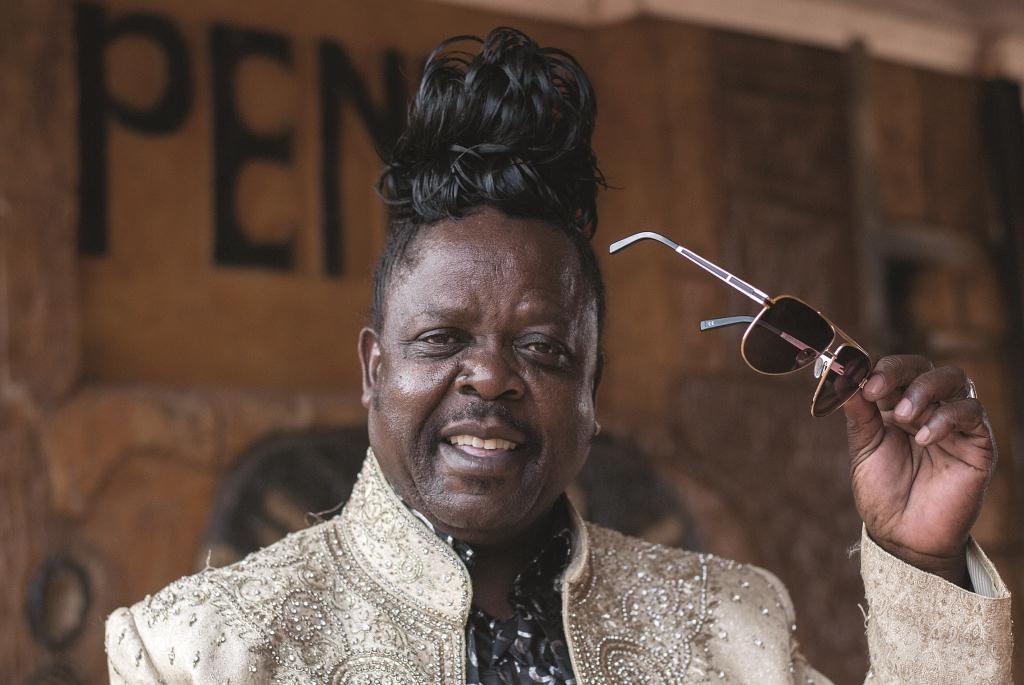As a young, flamboyant man who toured the world and sold thousands of records all Papa Penny Penny could think about was fame. Twenty three years later, he thinks young musicians should think about saving their money and life insurance.
Older and wiser, Penny Penny, whose real name is Eric Kobane, talks to us in his home in Nkuri Village, Sifasonke in South Africa’s Limpopo province. He returned to the village, where it all started, in 2003 because he ran out of money.
“We have to understand that death is inevitable, it doesn’t notify you that you’re going to die at a certain time. Therefore people must have insurance for themselves and their families. Even though [musicians] don’t get paid monthly, every little that you get you must save it so that when you die your family will be able to bury you,” says Penny Penny.
“There are so many artists that are being buried by the government. But it’s not obliged to bury us. If I die poor, I would be to blame for not saving.”
Emerging artists should listen. Penny Penny, a veteran of the African music scene and the Shangaan Disco King, as he is referred to, remains relevant today.
Loading...
He grew up with traditional dance. After years working at a mine, Penny Penny started making demo recordings and sent them to record labels. He was rejected every time.
“My voice was too small, not like this. They kept rejecting me because of my voice. I went to different companies and I remember one producer said I have a voice like a donkey. I was so disappointed but I never stopped,” he says.
His breakthrough came in 1994 when a Tsonga singer and producer, Joe Shirimani, discovered him at the offices of a record label where Penny Penny was working as a cleaner, earning a mere R400 ($29) a month.
“I didn’t have a place to sleep because I had used all my money to make demos. So I was secretly sleeping at the company and at night I’d go into the studio and teach myself how to use the equipment. I got caught. But Joe asked me to sing back-up for another artist. He got the label to record demos with me and from there we did my first album within seven days,” says Penny Penny.
With his first cheque of R150,000 ($10,800) Penny Penny bought a house, in Kempton Park, in Johannesburg’s East Rand.
“Anybody who wants to be a star has to learn to make money and save it. Young musicians go for girls, parties and expensive cars but don’t own a home,” he says.
More than 20 years since Penny Penny released his first album Shaka Bundu, he says it’s harder to find success.

Penny Penny
“This is a very difficult industry. We don’t get money every month; sometimes we get royalties after six months. When it comes you find that we have huge debts that we have to pay back, making it difficult to save.”
According to Penny Penny, South Africans support American artists more than their homegrown musicians.
Penny Penny himself draws bigger crowds away from home. His first performance in Mozambique filled a stadium with 37,000 people.
“We lost six people because of the stampede. I get surprised by the way people treat me; they welcome me in airports just to see if it’s really me,” he says.
It is not only his music that captured the hearts of fans – his flamboyant personality and pineapple phondo are just as popular.
It hasn’t always been good for Penny Penny though. He was accused of beating up his former manager, Lerato Manaka, who claims that he owes her R200,000 for gigs he performed since June 2016.
“My company hired her to be my PR person and to promote my CD with DJ Maphorisa. I didn’t hire her. She promised me a sponsor; I asked to get a contract. She never did, until she faked the contract. She’d organize interviews and then people would demand money from me. How can I owe her if she was the one paying me? Artists get their money from managers after they’ve taken their percentage,” says Penny Penny.
In January 1995, false news of his death circulated. Penny Penny believes the rumours were started by fellow musicians out of jealousy.
“They shot and killed my security guard because they thought it was me,” he says.
Penny Penny has been through a lot of bad publicity and rough times in his career. He rarely gives interviews.
“Media can build and break our careers. Newspapers will put you on the front page and say you did this and that, whereas it’s all lies. Even today, I’m surrounded by lots of propaganda, lies – manga manga business. They’ve been trying to destroy my reputation, I’ve decided not do any interviews again.”
Penny Penny never spent a day in school. For this reason, he is reliant on lawyers for all his business deals.
“In a contract, I only check money. I don’t see a lot of the stuff that is written in there. And I never sign a contract without a lawyer,” he says.
The 57-year-old still works very hard, touring constantly, and he has a reality TV show called Papa Penny Ahee that helps bring in the money. This time it is being used wisely knowing he will never retire.
Loading...
